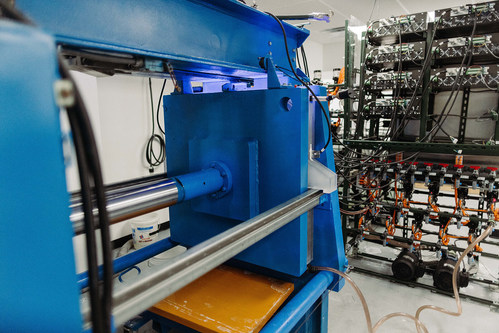Nth Cycle’s critical mineral refining, recycling technology reduces emissions – study
A Boston-based metal refining technology startup, Nth Cycle, began commercial operations in September and announced this month independent verification of its low-emissions refining technology, called electro-extraction.
According to the independent study, the company’s refining capabilities are 92% lower emissions than traditional mining and refining processes and 44% lower emissions than more modern critical minerals recycling technologies.
The company says it can take any material, any kind of scrap that has cobalt and nickel in it and turn it into a usable material that can go back into the supply chain.
Nth Cycle’s first product is a mixed hydroxide precipitate, which contains nickel and cobalt. Production of MHP through laterite ore refining is growing in popularity as a precursor chemical for battery cathode manufacturers. However, 81% of today’s MHP supply is refined in Indonesia, by Chinese companies, through a carbon-intensive hydrometallurgy refining process called HPAL (high pressure acid leaching), Nth Cycle said in a news release.
This HPAL-based supply of MHP is harmful to the environment and as a foreign supply, is not a compliant supply of critical minerals for domestic battery manufacturing under the recently passed Inflation Reduction Act.
CEO Megan O’Connor co-founded Nth Cycle in 2017 when she was completing her Phd in civil and environmental engineering at Duke University with professors Chad Vecitis, the company’s chief scientist and former professor at Harvard, and Desiree Plata, an advisor and current professor at MIT.
“We thought it could be game changing for the world of refining because there really hasn’t been any innovation in so many years because there’s been no incentive,” O’Connor told MINING.COM, adding that the company is working with some of the largest scrap recyclers in the US, and mining and refining companies in North America in the cobalt-nickel space.
“I had been researching, around the same time, all things around circular economy, specifically about metals. When I was reading about this and didn’t really see much attention around the fact that we aren’t going to have enough of these critical minerals to fully transition in the timeframe that we need to – it was pretty shocking to me that we’re all about clean energy and the transition, but nobody was talking about the metals crisis.”
O’Connor said the technology at the core of what Nth Cycle does was developed originally for wastewater treatment, and that electro extraction is a cleaner way to do hydrometallurgy.
“When we looked at the market and said ‘we need x-tonnes of metal per year’ we’re not going to enough recycled material to get to those volumes in terms of demand, so we have to figure out what other sources can we pull from, whether it be mining, mine tailings or other types of scrap besides batteries – I think its a huge step we need to focus on,” she said.
O’Connor said the technology thrives because its a much lower capex and smaller footprint, and the company can bring the machine onsite, to smaller mines.
“We’re combining the chemical precipitation with solvent extraction and electrowinning all into one technology that is our electro extraction unit, which is how we’re able to get the really high efficiency in terms of energy use, and then in turn the 75% reduction in greenhouse gas emissions,” she said.
“The ultimate mission and vision of Nth Cycle is really to get enough material in circulation so we don’t have to mine as much material in the future and we get better at evolving the circular economy concept so that we can simply recycle and reuse materials over and over again.”
“I don’t think people realize that these critical minerals that are mined everyday are the building blocks of clean energy. If you want to move away from fossil [fuels] we have to get these metals. There’s really no way around mining,“ she said.
“We have to figure out where we are going to get these materials from domestically,” she said. “But if we can make a cleaner, more efficient way to do this – we can help make it a better process so we don’t have as much [permitting] push back, with people saying “not in my backyard.”
The company plans to have its first field unit out in Q123.








Gloss